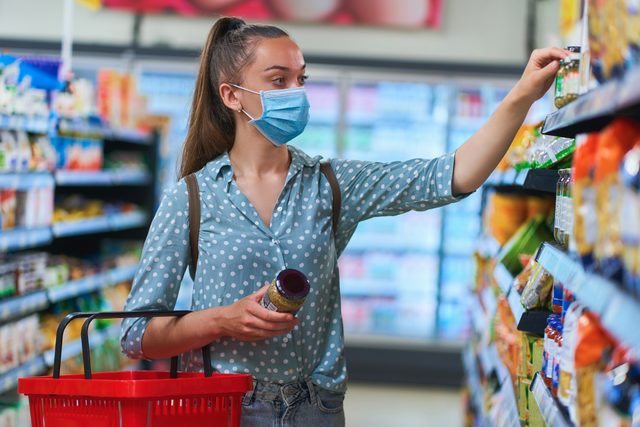KANSAS CITY, MO. — Consumer surveys conducted by InsightsNow Inc. in October 2019 and April 2020 show how the coronavirus (COVID-19) pandemic is affecting consumer perceptions of health and wellness. The surveys, which were conducted in 10 global markets, including Brazil, Canada, China, France, Germany, India, Mexico, Turkey, the United States and United Kingdom, identify renewed consumer interest in functional foods, clean label and specific diet plans.
“We are seeing a confluence of trends that is heightening interest in ingredients in foods and beverages,” said Greg Stucky, chief research officer for InsightsNow, a Chicago-based research consultancy, during a virtual webinar held as part of ShIFT20, a virtual event produced by the Institute of Food Technologists, Chicago. Its annual meeting and exposition was cancelled because of COVID-19.
Stucky said those who have attended past IFT annual meetings have heard a lot about functional foods. Discussion of the topic has been a staple of most meetings, but the category is generating renewed consumer interest due to COVID-19.
“So, prior to COVID — six months ago — (products that are a) good source of vitamins and minerals was substantially lower interest,” Stucky said. “Now, nearly half the population on a global basis are looking for good sources of vitamins and minerals.”
Other functional claims that have risen substantially during COVID-19 include “good source of protein” and “provides immune support.”
“This is something we of course would expect during something like COVID,” Stucky s
KANSAS CITY, MO. — Consumer surveys conducted by InsightsNow Inc. in October 2019 and April 2020 show how the coronavirus (COVID-19) pandemic is affecting consumer perceptions of health and wellness. The surveys, which were conducted in 10 global markets, including Brazil, Canada, China, France, Germany, India, Mexico, Turkey, the United States and United Kingdom, identify renewed consumer interest in functional foods, clean label and specific diet plans.
“We are seeing a confluence of trends that is heightening interest in ingredients in foods and beverages,” said Greg Stucky, chief research officer for InsightsNow, a Chicago-based research consultancy, during a virtual webinar held as part of ShIFT20, a virtual event produced by the Institute of Food Technologists, Chicago. Its annual meeting and exposition was cancelled because of COVID-19.
Stucky said those who have attended past IFT annual meetings have heard a lot about functional foods. Discussion of the topic has been a staple of most meetings, but the category is generating renewed consumer interest due to COVID-19.
“So, prior to COVID — six months ago — (products that are a) good source of vitamins and minerals was substantially lower interest,” Stucky said. “Now, nearly half the population on a global basis are looking for good sources of vitamins and minerals.”
Other functional claims that have risen substantially during COVID-19 include “good source of protein” and “provides immune support.”
“This is something we of course would expect during something like COVID,” Stucky said. “It has a dramatic impact on us emotionally and socially.”
The second trend identified by InsightsNow is clean label, where such claims as “fresh,” “natural,” “no artificial flavors” and “organic” are getting a boost from the pandemic.
“All of the basics of clean label are increasing, if you will, and getting a boost from COVID,” Stucky said.
Global sales of clean label food products are expected to reach $180 billion in 2020, according to Euromonitor International. Citing data from Mordor Intelligence, Stucky said sales of clean label ingredients are projected to grow 6.75% annually to $51.1 billion by 2024. He added that the impact of COVID-19 on consumer purchasing patterns may push that number higher.
A third trend identified by InsightsNow focuses on programmatic dieting.
“Dieting has been on the decline,” he said. “With COVID we are seeing this COVID-release spike. We are seeing a big jump in the number of people saying they are on diets or taking on specific types of diets.”
Data presented by Stucky showed that in China, the first country to exit a COVID-induced lockdown, 16% of consumers said they were on some sort of programmatic diet two weeks after release from the lockdown.
“We believe this is going to sweep the rest of the people who talk about the COVID pounds that people put on during the COVID lockdown period,” he said. “We’re certainly seeing that now with people in China getting out of lockdown and starting to walk around and realize, ‘I need to lose a little more weight.’”
Information on registering for ShIFT20 may be found here.


